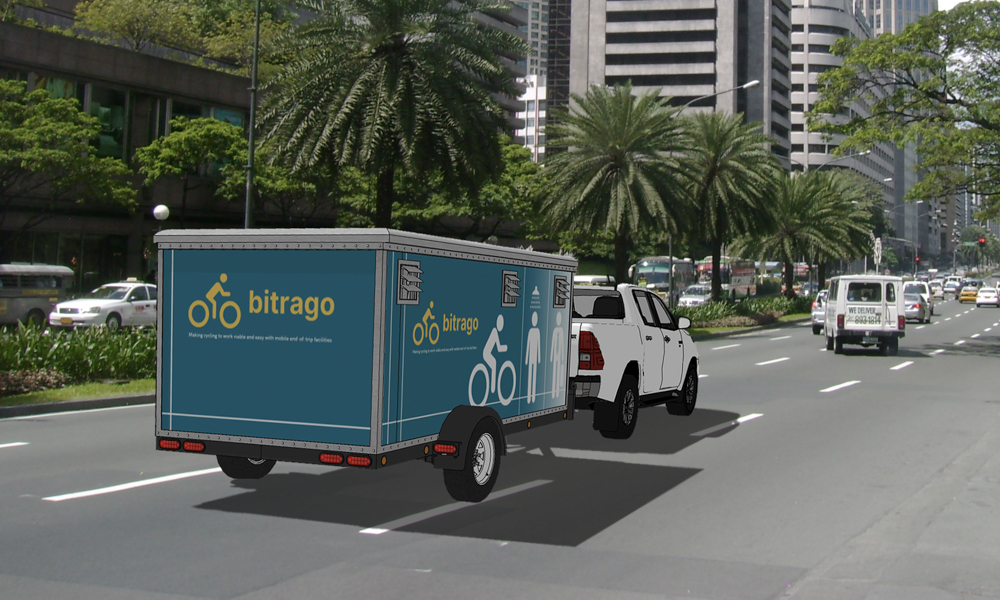
The best ideas—the ones that change the world for the better in real and meaningful ways—are often simple ones born out of necessity. This is the story of what I hope is one such idea, and a request for someone to help me make it a reality.
A few years ago, before COVID-19 changed the way people move through Metro Manila, I had already been cycling to work from Mandaluyong to Makati every day. I grew up in Germany, where cycling to school and work is the most normal thing in the world. So, commuting by bike to beat the horrendous Manila traffic seemed purely logical to me despite the comments of my coworkers and friends that I must be nuts to do something so dangerous. Instead of spending an hour using a taxi or Grab, I was at my office in 15 minutes flat, no matter what time of day. The truth is, cycling to and from work during rush hour is quite safe as you’re basically riding through one giant car park. Just look at Makati Avenue from 5pm to 7pm, and you’ll know what I mean. The real problem with cycling to work lay elsewhere and needed to be addressed.
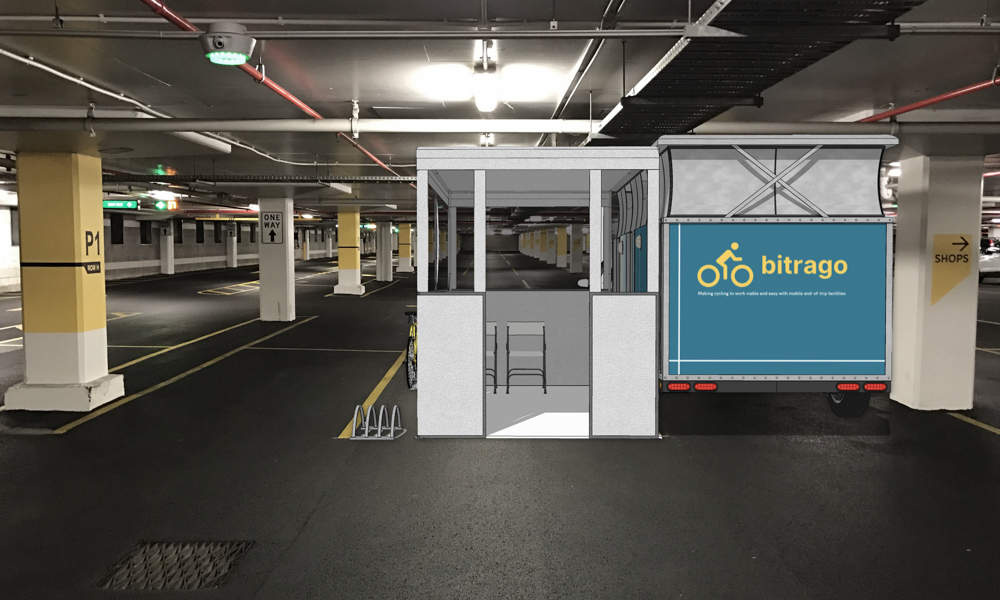
Because I was an office worker who needed to wear a shirt and look at least reasonably presentable while earning a living, cycling through the heat inevitably meant having to get changed and freshened up after arriving at work. Sadly, showers and changing-room facilities—long standard features in many cycling-friendly European countries—are almost nonexistent in the business districts of the Philippines. So, I always ended up having to get changed in the less-than-glamorous surroundings of a comfort room’s cubicle.
My first idea was to explore the option of having showers fitted to the office, but one look at building regulations and the mountains of red tape in the way made it clear that this would be a nonstarter. Then I noticed something: Almost all office buildings have car parks, often with space for dozens or even hundreds of cars. If more people cycle, then fewer car parking spaces would be needed. So, what if we created a mobile changing room (with shower) and put that on a standard office car parking space instead? Such a facility doesn’t need complex building permits.
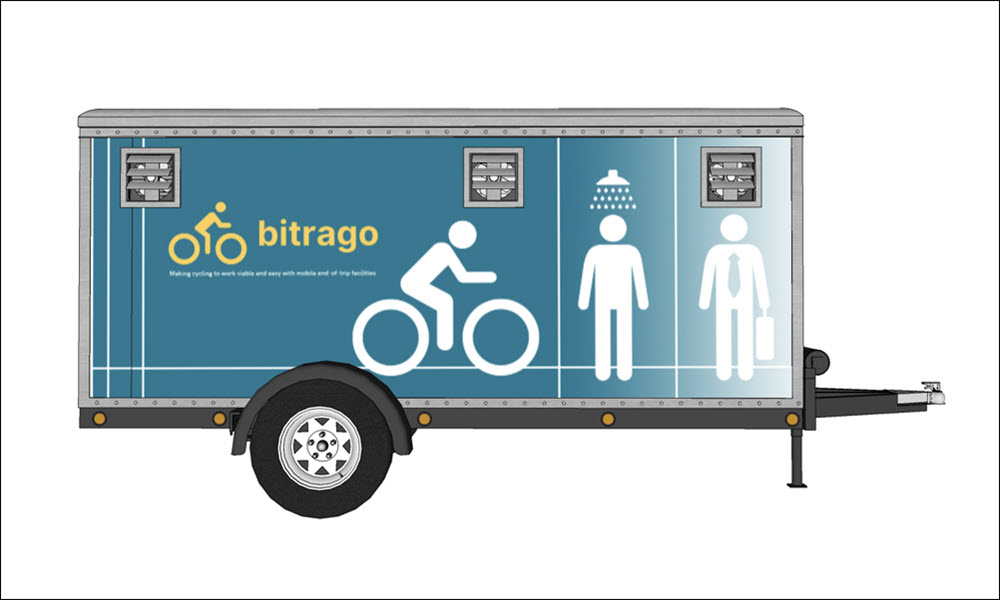
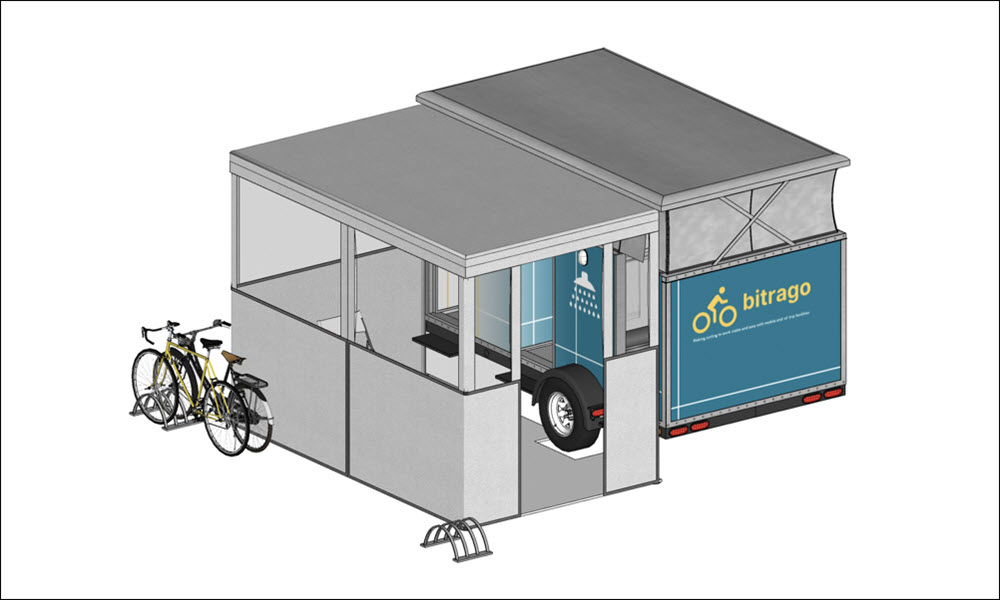
The idea of Bitrago was born. The name is made up of three words: BIsikleta, TRAbaho and maliGO (bicycle, work and take a bath). The concept is quite simple. Create a trailer that fits into any standard underground or multistory office car park. Inside that trailer are multiple cubicles where cyclists can get changed, and freshen up with a quick shower. Able to be towed by any standard SUV or pickup and requiring only minimal utility connections for electricity and water, these units can be bought or rented by companies and offer a relatively cheap way of providing office staff with such facilities without the need for complex and expensive building work. A simple app is used to book time slots and maximize throughput, while an attendant can be employed to quickly clean and sanitize units between users.
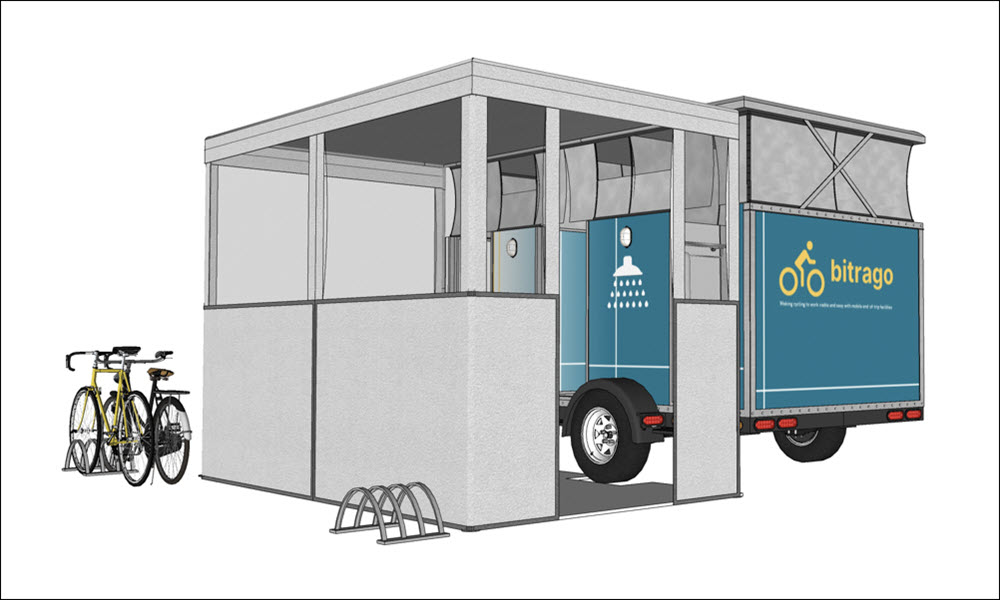
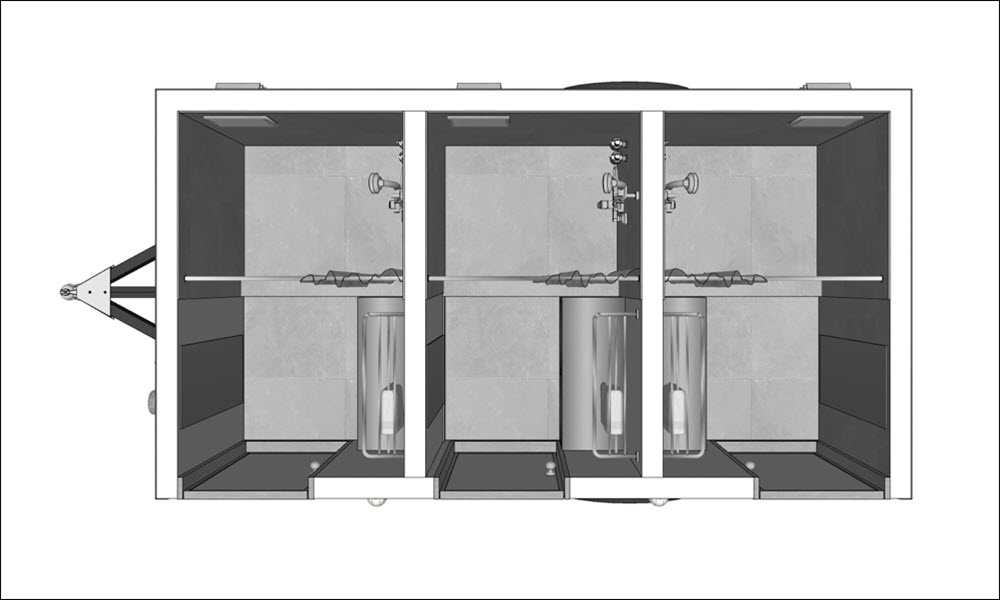
At the moment, Bitrago is in the concept stage with first designs having been created and a trademark filed. The feedback so far has been good, and it appears the idea is indeed viable. What I need now are two main things: a vehicle manufacturer or coachbuilder that can help create a prototype, and an investor who shares my vision and can see the enormous potential in the idea. What Grab was for taxi users, Bitrago can be for cyclists, and the possibilities of a product and a brand like this are not limited to purely providing mobile changing rooms. Cycling has seen a wonderful increase in popularity over the last two years, and Bitrago can be the missing link when it comes to making it the preferred method to commute in the Philippines.
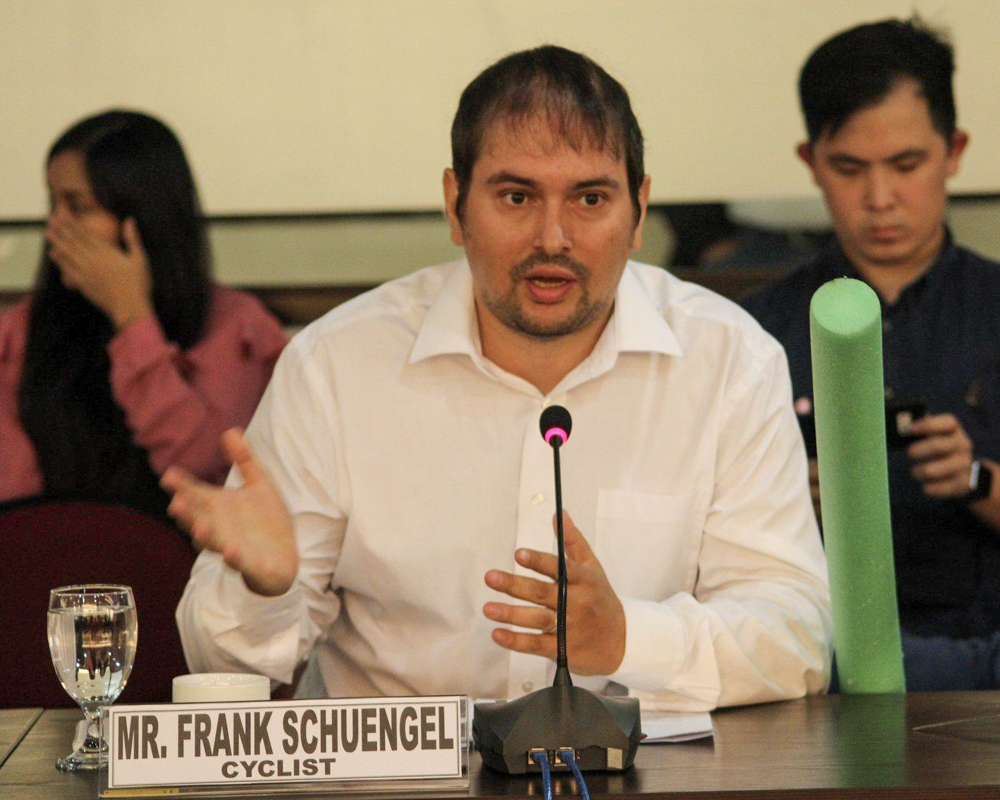
It can be the lighthouse brand that makes cycling to work the smart and respected way to commute. At the same time, it will help solve the traffic issues of the country’s capital and make the city a cleaner and safer place to live and work. Manila was once called the Paris of Asia. The real Paris, however, has been turned into a cyclist’s paradise in recent years, and there is no reason why Manila can’t do the same. Bitrago can help stressed mayors and city planners in the fight against congestion, enable employers to support cycling staff members, and lead to a healthier and happier population overall.
If this sounds good to you and you’re up for changing the world, then visit this website or drop me a line. Let’s do this.

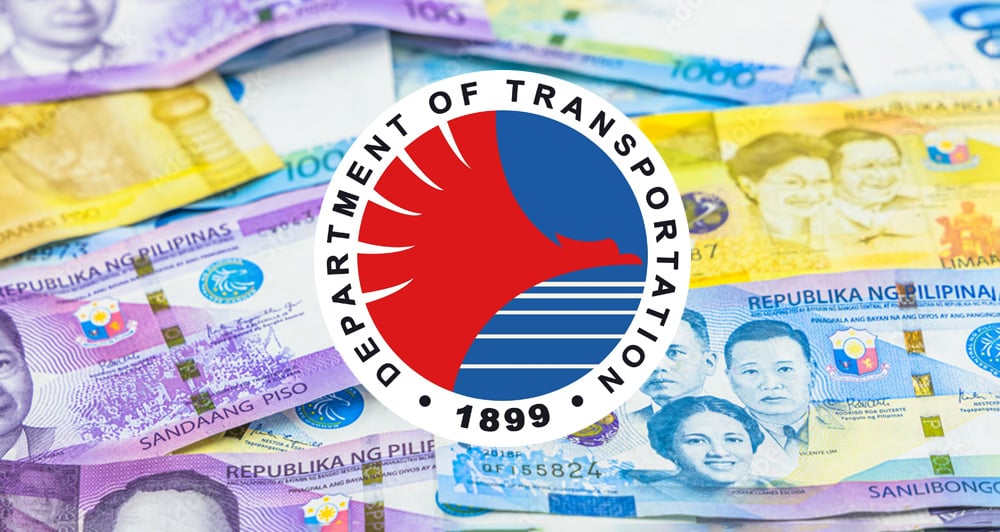


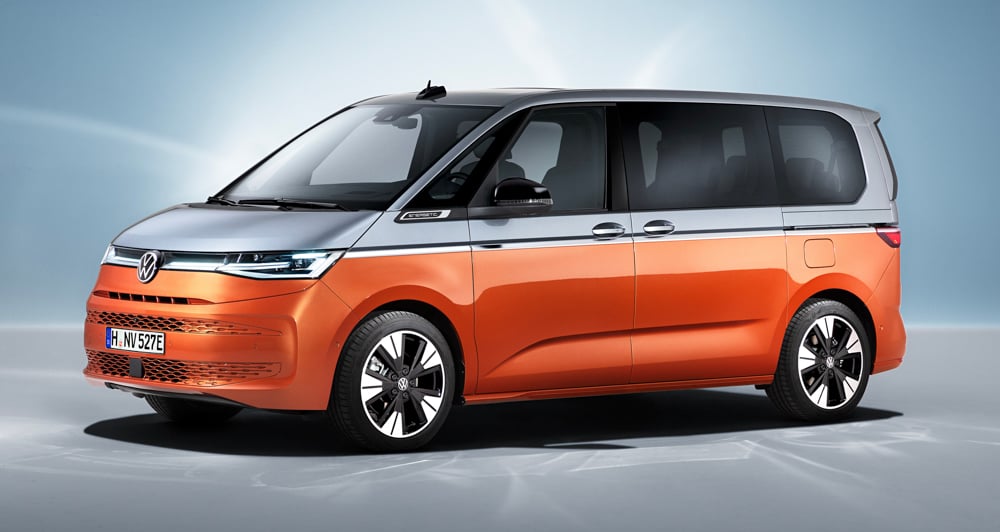
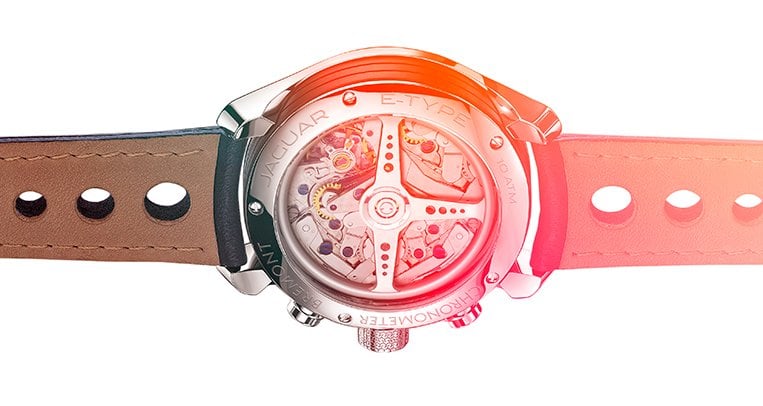
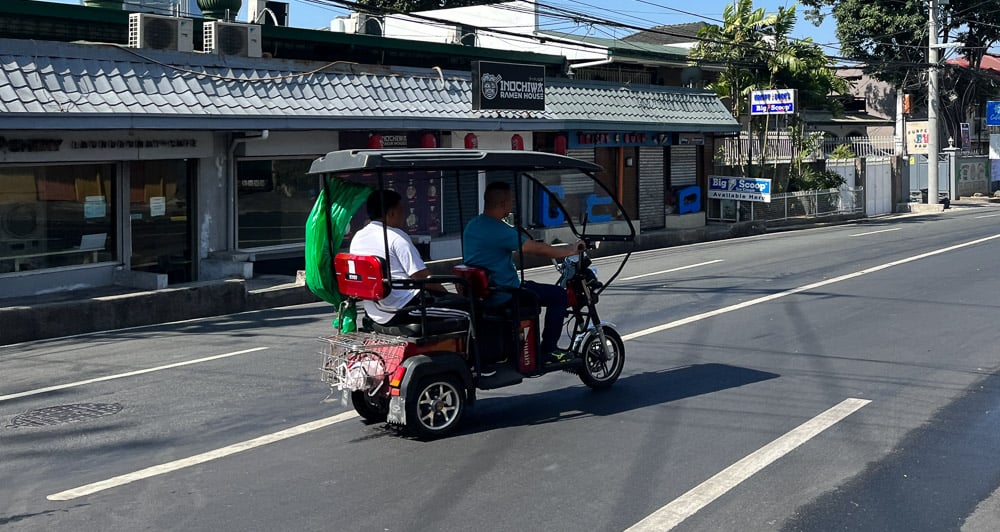

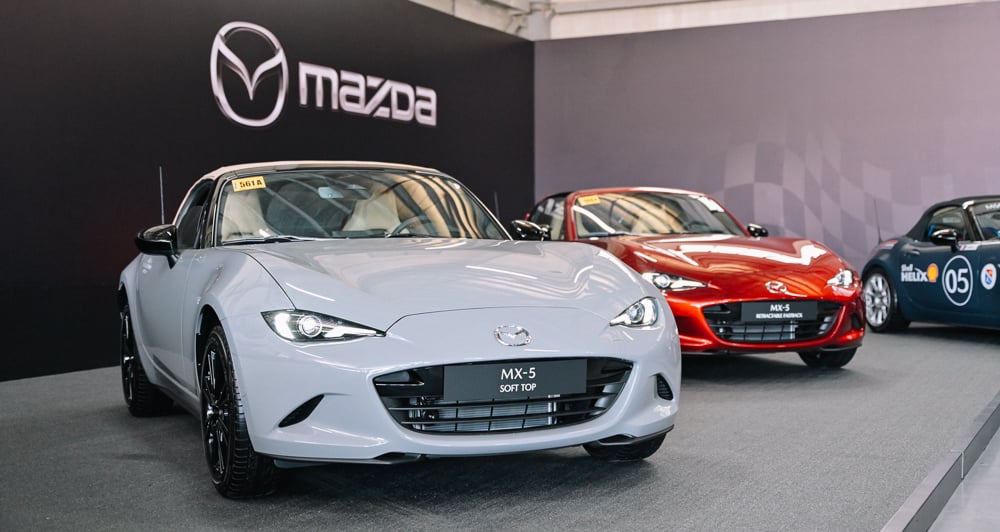
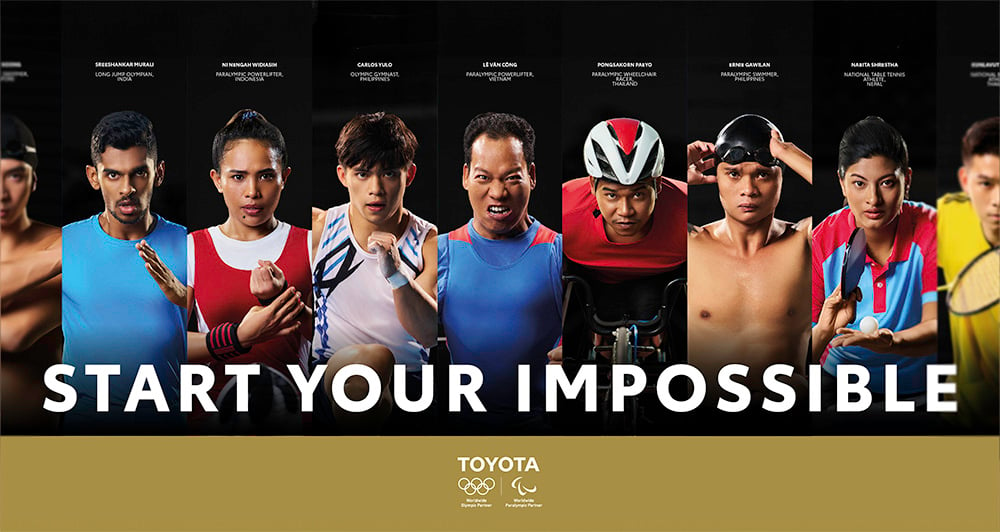
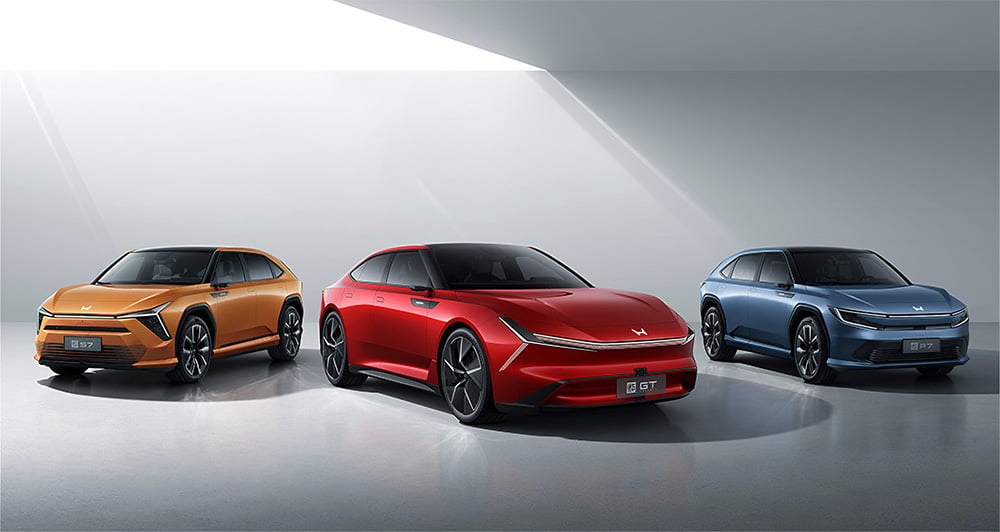
Comments